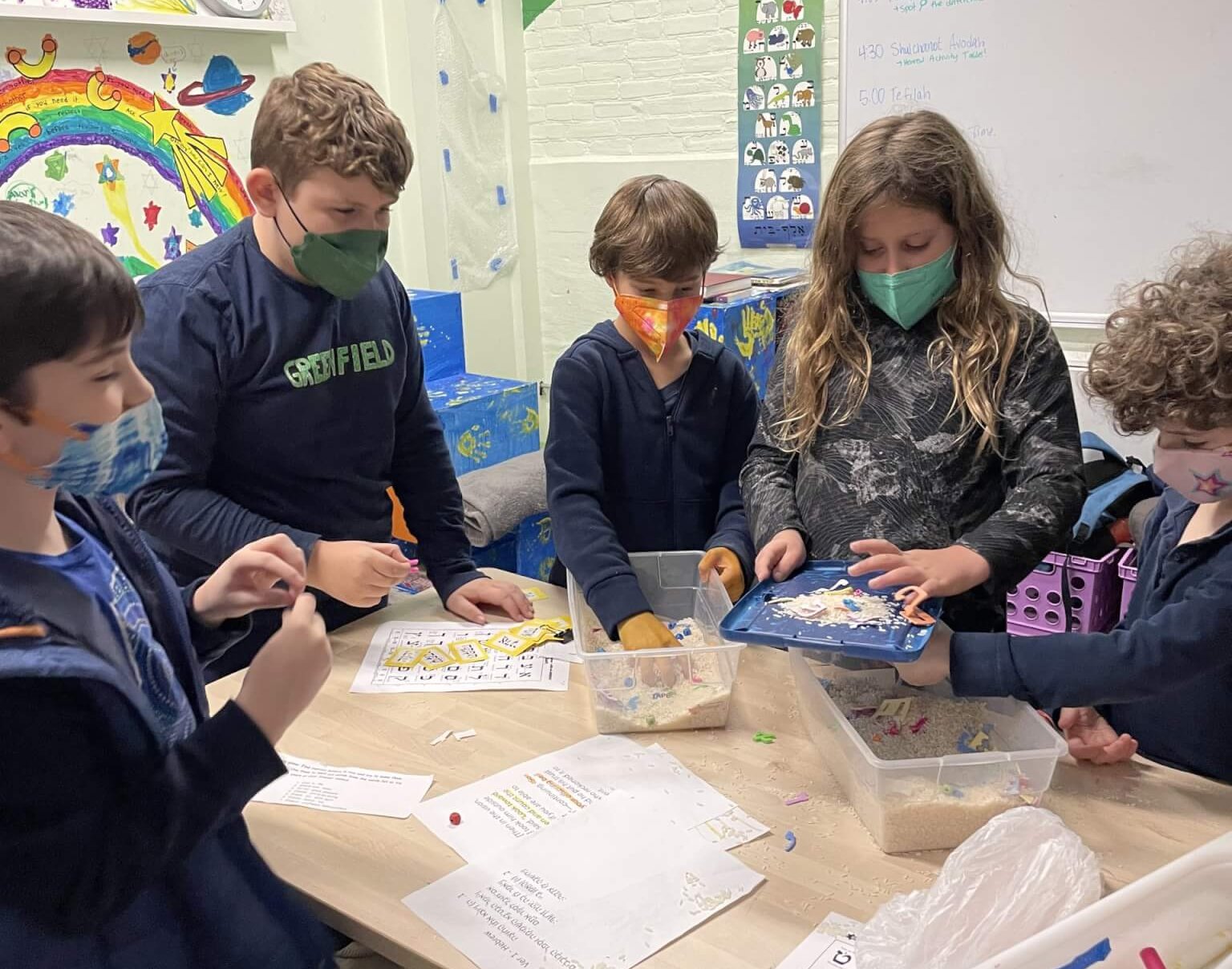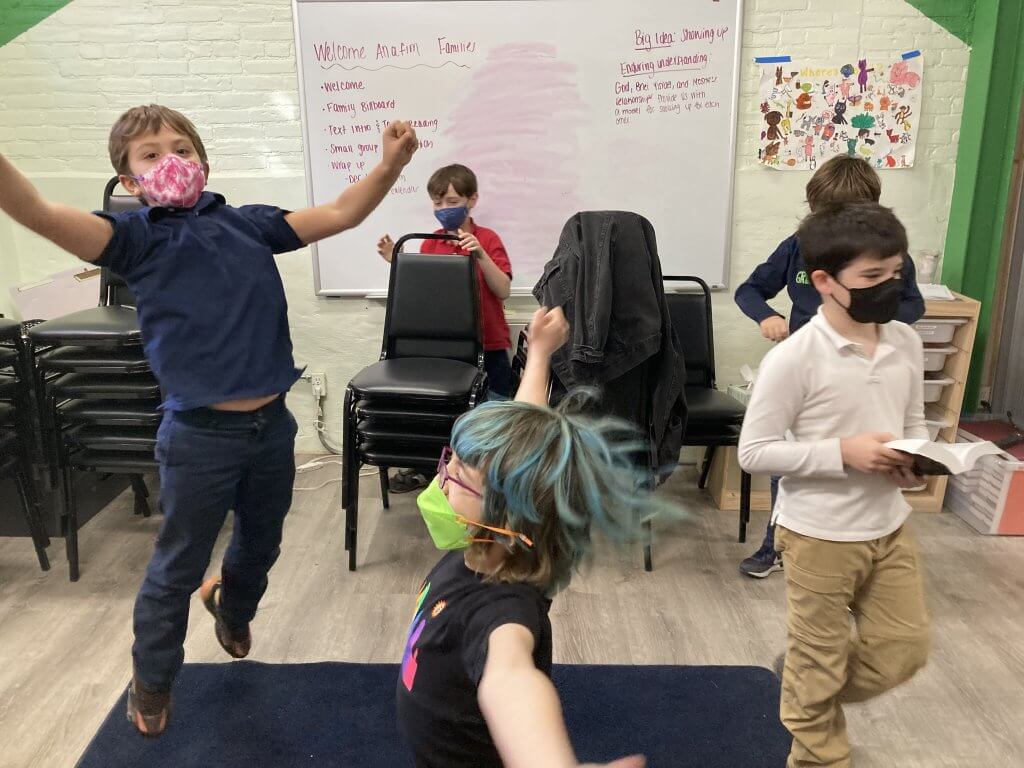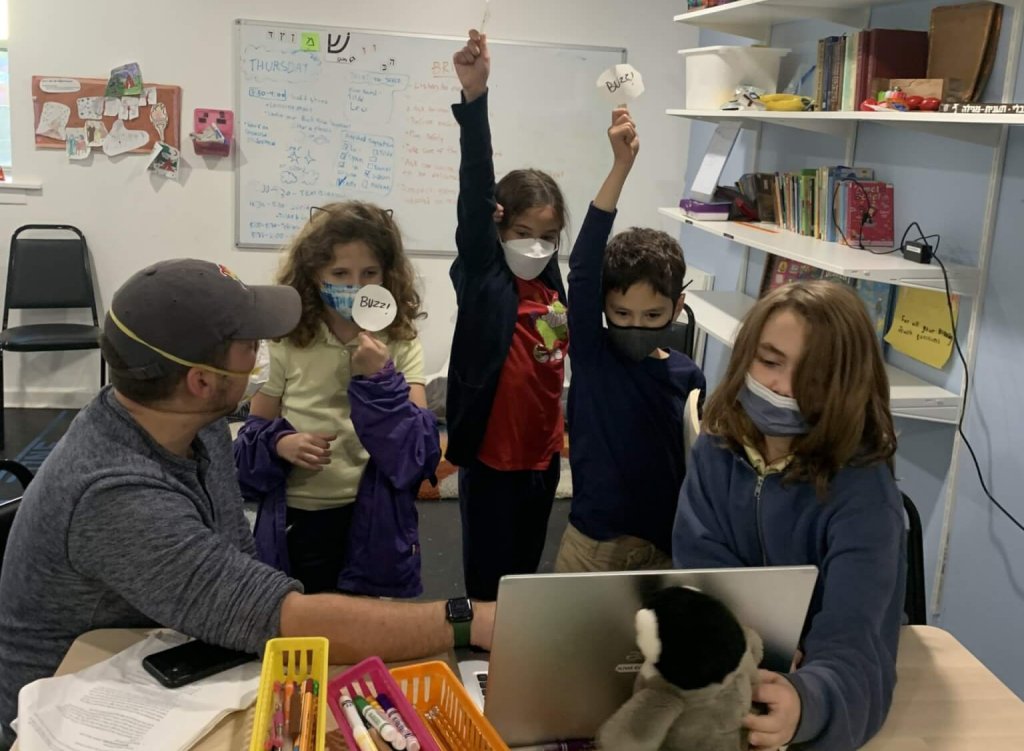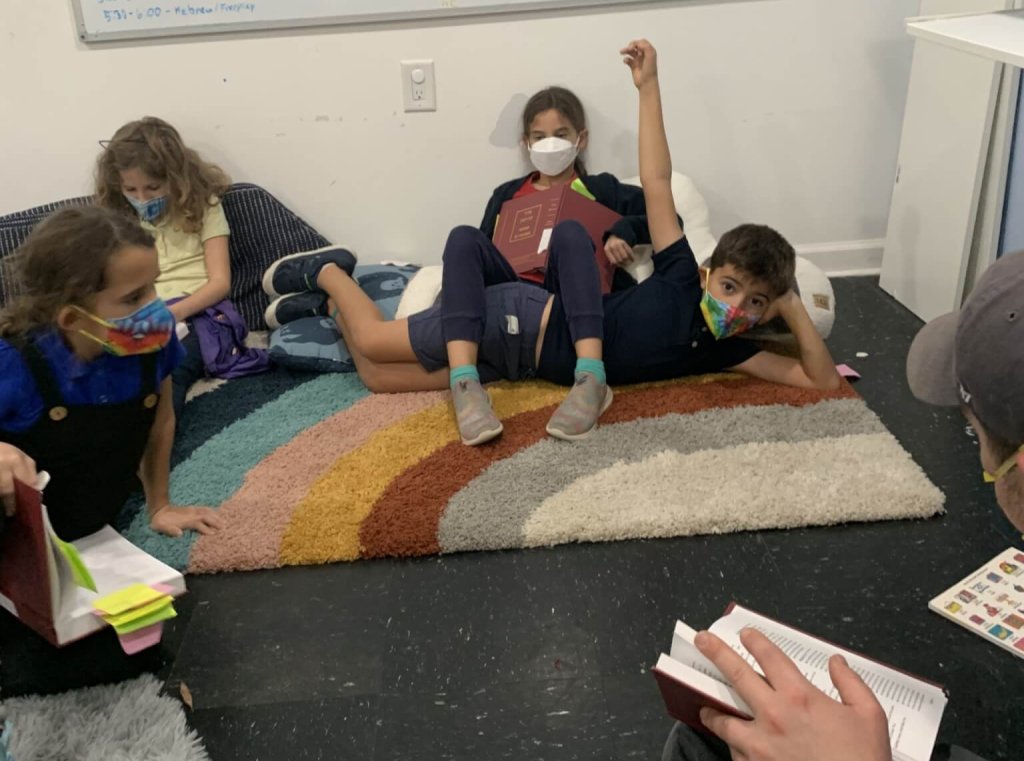
How do we give kids a sense of ownership and meaning of the tefilot (prayers) we chant in Hebrew each day? To some kids, learning Hebrew at Makom is their first experience with the challenges of language learning and the practice of engaging in tefilot is one they have been introduced to for the first time in our program. Once kiddos reach Nitzanim, 2nd-4th grade, we take an investigative approach to the Hebrew language and the philosophical, big picture meanings of tefilot in a process called Tefilah Workshop. Whether it’s the first time learners have encountered Hebrew and tefilot or the hundredth, we want to give kiddos the tools and opportunities to be life-long learners of these sacred, centuries-old texts that we still engage with today.

So, what do we mean when we say “Mastery”?
If you have a kiddo in Nitzanim,chances are you have heard the term “Mastery”. As both Nitzanim crews in South Philly and Center City have progressed in our study of Ivrit (Hebrew language) and work towards a deeper understanding of and engagement with the tefilot that we read and sing every day, “Tefilah Mastery” has become a more frequent topic.
When a Nitzanim learner has mastered a tefilah, that means that they can read and sing through the Hebrew text of the prayer by themselves, are able to summarize the tefilah’s main idea and ask three juicy questions about it. Asking questions is foundational to learning at Makom, so while it has been very exciting to watch as our learners expand their Hebrew-reading skill-set with incredible dedication and self-motivation, our favorite part of mastery is hearing the thoughtful questions students ask about the tefilot they are studying. During each mastery check, students share their questions with educators and together we talk through ideas, leading to some truly Mishnah (Torah commentary)-worthy conversations.

Every learner in South Philly Nitzanim has either completed or is well on their way to completing Mastery of the Shema. Here are some of the questions students have raised about this prayer:
- “If you love Adonai with all your heart does that mean you can’t love anyone or anything else?”
- “Why can God live forever?”
- “Is my essence blessed if God’s is and I was made in God’s image?”
- “Is God non-Binary?”
It’s safe to say that as our Nitzanim learners are continuing the tradition of commentary, they have also been expanding on the practice of Tefilah at Makom.
During Tefilah Workshop, our designated time to work on mastering tefilot, our learners work ondeveloping a deeper understanding of and connection to the tefilot we engage with daily. Kiddos are taking the skills they’re developing in Tefilah Workshop and applying them in their own creative ways during tefilah. With a growing confidence in chanting Hebrew and increased understanding of the meanings of tefilot, kiddos have been demonstrating comfortability in leading the rest of the group in reciting, dancing, and even drumming along to the prayers. Learners have also suggested a slower, calmer Oseh Shalom to complement the sincere, powerful energy of the words of this peace prayer. When kiddos bring their own rich perspectives and refreshing approaches to tefilah, like incorporating percussion, dancing, and doodling to this ancient practice, they add their own Torah.
Nitzanim learners continue to wow us every day with their ability to continue the Jewish tradition of asking questions, posing new ideas, and making tefilah their own.

Written by: Oliva Hacker-Keating (South Philly), Abby Brown (Center City), and Maya Winneg (Center City)
